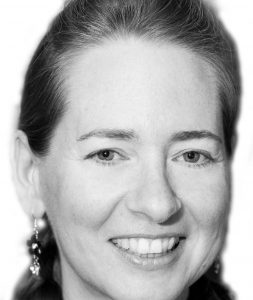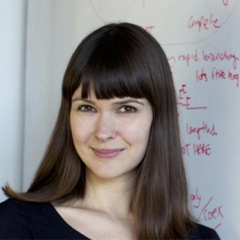Travel award recipients for April 2017
We had a huge response to this round of the OBF travel award. After reviewing the applications, the OBF board selected four recipients. Three applicants accepted awards, and all plan to use the funds to attend this year’s BOSC, to take place July 22-23 in Prague.
Congratulations to our spring 2017 recipients:
- Sourav Singh, who will participate in the Codefest and present the Biopython Project Update 2017 talk
- Jonathan Sobel, presenting on a citizen science project named BeerDeCoded, carried out by members of the Swiss non-profit called the Hackuarium
- Jiwen Xin, presenting the BioThings Explorer project, which integrates genomic data via public APIs
We encourage everyone at BOSC to come out and support our award winners! After BOSC, watch for blog posts from each of the awardees.
[Read More]BOSC 2017 keynote speakers
We’re delighted to announce the keynote speakers for the Bioinformatics Open Source Conference, BOSC 2017, and our first sponsors.
But first a final reminder - today (Thursday 13 April 2017) is our deadline for submitting a full length talk abstract to BOSC 2017.
Dawn Field
 Dawn Field is a Lamberg International Guest Professor at Göteborg University’s Department of Marine Sciences. Previously she was a senior research fellow at the NERC Centre for Ecology and Hydrology, Head of the Molecular Evolution and Bioinformatics Group at the Centre for Ecology and Hydrology in Wallingford, UK, and a research associate at the Smithsonian Institution. She is also a founder of the Genomic Standards Consortium, the Genomic Observatories Network and Ocean Sampling Day.
Dawn Field is a Lamberg International Guest Professor at Göteborg University’s Department of Marine Sciences. Previously she was a senior research fellow at the NERC Centre for Ecology and Hydrology, Head of the Molecular Evolution and Bioinformatics Group at the Centre for Ecology and Hydrology in Wallingford, UK, and a research associate at the Smithsonian Institution. She is also a founder of the Genomic Standards Consortium, the Genomic Observatories Network and Ocean Sampling Day.
BOSC 2016 in Disney World with Donald Docker!
First I would like to congratulate OBF that supports diversity in the community with its travel awards initiative. I was very pleased to be one of the three travel fellowship awardees. Thank you OBF! Ιt was great to attend BOSC 2016 and meet remarkable people and know their work.It was one of the most welcoming meetings I have attended and Ι liked that is was active on the social media and the conference materials and speaker presentations were available online. It made it fun and useful and we could focus less on our notebooks and more on the speakers. Τhis also attracted a lot of positive comments from the other Special Interest Groups. So “Bravo” to the organizers!On the scientific part, it was nice to see Docker making an impression on the bioinformatics community. Everyone was talking about it. It is an awesome way to package bioinformatics applications and the fact that it received so much attention got me pretty excited. I am planning to use it to package CollOS, an open source web application I presented at the conference, that tracks, annotates and barcodes biological samples to facilitate wet lab scientists to locate and identify biological samples.Last but definitely not least, I would like to congratulate Mónica Muñoz-Torres and the organizers for their reference to the recent tragic shooting incident in Orlando.Hope to see you next year in Prague!Dimitra
[Read More]New BioJava Logo Design Competition
BioJava is organizing a design competition to come up with a new logo. Anybody can participate:
The logo should look modern and be better than the current one (yellow circle)
The logo should be able to be rendered as a favicon, as well as large (e.g. on a t-shirt). Designs that come in two (or multiple) sizes are ok.
Logos shall not look similar in any way to the trademarked Java programming language logo. This means no coffee cups in any way.
[Read More]
BOSC 2016 Panel: Growing and Sustaining Open Source Communities
Every year, BOSC includes a panel discussion that offers attendees the chance to engage in conversation with the panelists and each other. BOSC is all about community, so this year’s panel topic– Growing and Sustaining Open Source Communities–is right at the heart of what we do. Since the first BOSC in 2000, we have focused on bringing together open source bioinformatics developers and users to form and expand collaborations and grow the communities that use and improve their tools and resources.
[Read More]First three OBF travel fellowships awarded
The first round of the Open Bioinformatics Foundation travel fellowship program has granted funds to three open source bioinformatics software developers to help them attend the Bioinformatics Open Source Conference (BOSC) 2016 in Orlando, Florida, this July. The travel fellowship program ( announced 1 May 2016) aims to increase diverse participation at events promoting open source bioinformatics software development and open science in the biological research community. Applications for the first round in 2016 were due on April 15, with two more due dates this year on August 15 and December 15.
[Read More]BOSC CodeFest 2016
The Bioinformatics Open Source Conference (BOSC) is a two day meeting focused on open source bioinformatics. We aim to encourage and support a friendly, open and productive community that helps us work together to answer hard biological questions. We’ll get together this summer, July 8-9, in Orlando, Florida.
Abstracts for BOSC 2016 talks and posters are due this Friday, April 1st. We want to hear about your research and encourage everyone to submit an abstract. We love talks from newcomers to BOSC as well as established projects: no idea is too big or small. We also offer Travel Fellowships for speakers if money would be a barrier to attending.
[Read More]BOSC 2016 Keynote Speakers
We’re delighted to announce the keynote speakers for the Bioinformatics Open Source Conference, BOSC 2016:
Jennifer Gardy
Dr. Jennifer Gardy is both a scientist and science communicator. She holds a PhD in Bioinformatics, and is an Assistant Professor of Population and Public Health at the University of British Columbia and a Senior Scientist at the British Columbia Centre for Disease Control (BCCDC). At the BCCDC, she pioneered a new way of investigating outbreaks of infectious diseases – “genomic epidemiology”, which uses a pathogen’s genome sequence as a tool for understanding how an infectious disease spreads. Her group was the first to use genome sequencing to reconstruct a large outbreak of tuberculosis, and she is continuing to apply this novel technique to other outbreak scenarios. She is also involved in other genomics-related research, including replacing traditional laboratory microbiology protocols with single genomic analyses. In 2014, she was appointed the Canada Research Chair in Public Health Genomics, and is Senior Editor at the new open data, open access journal Microbial Genomics.
[Read More]OBF Travel Fellowship Program
We are very pleased to announce our new Open Bioinformatics Foundation (OBF) Travel Fellowship program. The program is designed to enable people, whether long-standing members of our community or newcomers, to participate in eligible events for which costs would otherwise be prohibitive. This includes our annual Bioinformatics Open Source Conference (BOSC).
Although not limited to specific groups of people, the program constitutes another major step for us in our ongoing efforts to increase the diversity in our communities in particular, and in the open source / open science bioinformatics community in general. As explained in the just published BOSC 2015 report, inclusivity was one of the founding principles of the Bio* open-source project communities that came together under the OBF umbrella, and thus also of BOSC, our flagship event. OBF’s bylaws have included a nondiscrimination clause from the outset. OBF’s major member projects have not only always welcomed new participants to their communities, but embraced passing on leadership to people who hadn’t been part of the “inner circle” from the beginning.
[Read More]